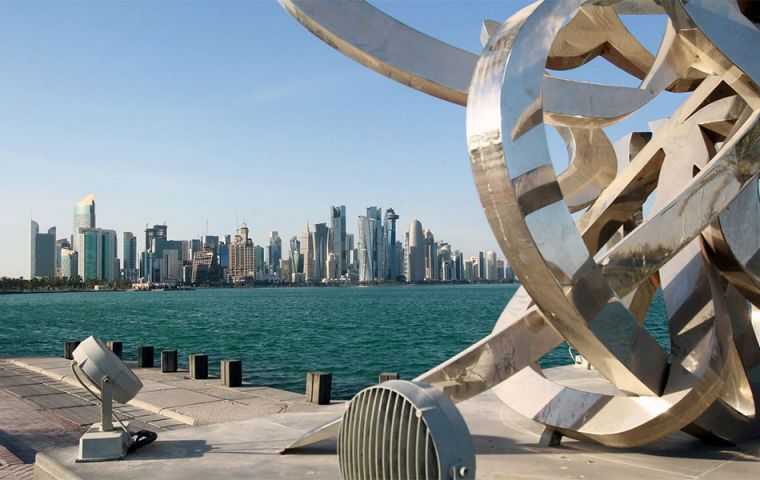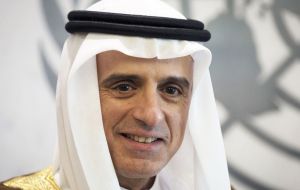MercoPress. South Atlantic News Agency
Qatar files a complaint to WTO on the trade embargo imposed by Gulf neighbors
 The complaint filed with the WTO includes a request for “formal consultations” between Qatar and its neighbors. (Pic Reuters)
The complaint filed with the WTO includes a request for “formal consultations” between Qatar and its neighbors. (Pic Reuters)  Saudi Foreign Minister Adel Al-Jubeir said they are willing to talk but “dialogue doesn't mean there are concessions”.
Saudi Foreign Minister Adel Al-Jubeir said they are willing to talk but “dialogue doesn't mean there are concessions”. Qatar has filed a complaint with the World Trade Organization over a trade embargo imposed by its Gulf neighbors. The complaint accuses Saudi Arabia, Bahrain and the United Arab Emirates of violating the trade group's “core laws and conventions on trade of goods and services, and trade-related aspects of intellectual property,” according to a statement from Qatar's ministry of economy and commerce.
The three Gulf States cut diplomatic ties and transport links with Qatar on June 5, accusing it of funding terrorism. Qatar has denied the accusations. Egypt, which is also participating in the embargo, was not named in the WTO complaint.
Qatar has been put under pressure by the embargo, and the gas-rich nation has been forced to engineer alternative supply chains. Cows have been flown in to ease a milk shortage, for example.
The complaint filed with the WTO includes a request for “formal consultations” between Qatar and its neighbors. If an agreement is not reached within 60 days, the WTO will convene a dispute settlement panel.
“Qatar asks these countries to sit at the dialogue table and start holding such consultations,” said the statement from Qatar. It can take years for the trade group to mediate disputes, which can result in retaliatory penalties.
The WTO confirmed that it had received the complaint.
The UAE's economy ministry said in a statement that “the economic measures taken against Qatar don't contradict WTO agreements because they pertain to national security.”
That argument is likely to form the basis of the group's defense at the WTO, which has in the past allowed exceptions based on national security concerns.
The countries have sought to extract concessions from Qatar in return for restoration of diplomatic and economic ties. The demands include closing the state-funded Al Jazeera media network, reducing diplomatic ties with Iran, and halting the construction of a Turkish military base in Qatar.
Qatar's foreign minister has said his nation wouldn't comply with any demands that it considers a violation of international law. But there are few signs of progress as the crisis approaches the end of its second month.
Foreign ministers representing the quartet said they are ready to talk, but not to back down from their demands. “Dialogue doesn't mean there are concessions,” said Saudi Foreign Minister Adel Al-Jubeir.
Qatar has been put under pressure by the embargo, and the gas-rich nation has been forced to engineer alternative supply chains. Cows have been flown in to ease a milk shortage, for example.




Top Comments
Disclaimer & comment rulesCommenting for this story is now closed.
If you have a Facebook account, become a fan and comment on our Facebook Page!